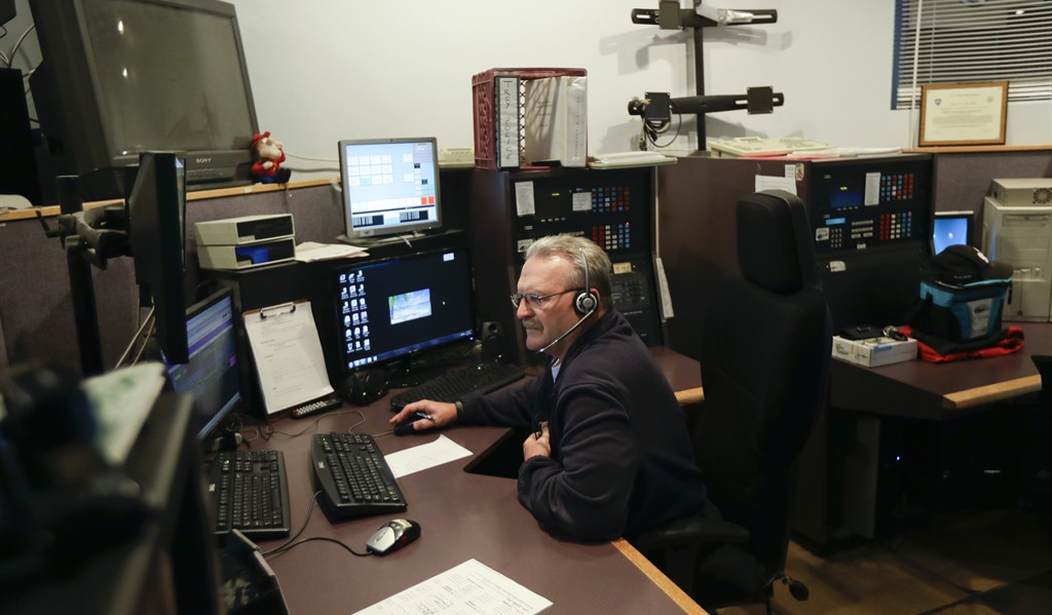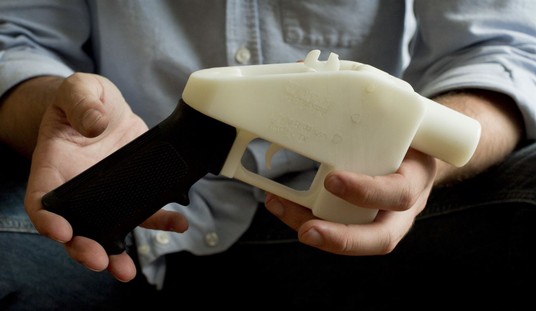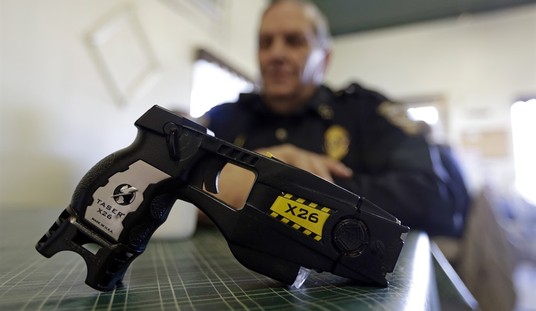"You don't need a gun. Just call 911."
I've lost track of how many times I've heard a gun control activist say something along those lines over the years. But what happens when calling 911 isn't an option?
Several U.S. states experienced a 911 emergency services outage late on Wednesday, including the entire state of South Dakota and portions of Nevada, Texas, and Nebraska, according to local officials.
It was not immediately clear what was causing the outages.
Late on Wednesday, officials in South Dakota and Las Vegas said that 911 services had been restored, but they did not say what caused the crucial emergency infrastructure to fail.
... The South Dakota Department of Public Safety, Las Vegas Metropolitan Police Department and Douglas County, Nebraska, all reported outages to their 911 services.
Late on Wednesday, the Las Vegas police said their 911 service had been restored, and that everyone who called during the outage had been called back and given assistance.
In Texas, the police department in Del Rio, on the border with Mexico, said its Facebook page that 911 services were down.
South Dakota's Department of Public Safety said efforts were underway to resolve the issue, without disclosing the cause of the outage.
The Del Rio PD posted to Facebook saying it was "aware of an outage with a major cellular carrier affecting the ability to reach 911," but most of the other departments that were affected have been mum about what was behind the outage. While a cyberattack is a real possibility, we've also seen widespread outages like this in the past that were the result of human or computer error.
The Department of Homeland Security and the Federal Communications Commission have yet to comment publicly on the latest outages.
In February, outages at AT&T affected more than 1.7 million customers in the United States, impacting 911 centers in California, North Carolina and Texas. The centers asked customers to use a landline for emergency calls or find a cellphone that uses a different carrier. AT&T said the disrupted services were not caused by a cyberattack but by an error made while expanding its network.
Last year, Arlington and Alexandria, Va., also experienced problems with their 911 systems, preventing residents from making voice calls to the emergency line.
In 2014, emergency phone services went dark for more than 11 million people across seven states. The entire state of Washington was disconnected from 911, where 4,500 emergency calls failed to go through during an eight-hour period, according to the chairman of the state utility commission. A study by the Federal Communications Commission later found that a preventable software error was responsible for disrupting the 911 service.
Whatever is behind the outages that were reported on Wednesday, the fact remains that we can't rely on picking up the phone and calling 911 to alert authorities that we're in trouble. That might not even be an option in many cases where someone wakes up with a stranger in their home or their bedroom. Even in the best of circumstances there's no guarantee that police will be able to respond in time. When seconds count, police are only minutes away, after all.
But the Department of Homeland Security is also warning that cyberattacks on critical 911 systems are also taking place, and they could become more common in the future.
In January, a cyberattack hit the department of emergency communications in Bucks County, Pennsylvania, outside of Philadelphia, affecting its computer-aided 911 system – forcing dispatchers to use pen and paper to take information from callers, according to ABC station WPVI.
The same month, the computer system in Fulton County, Georgia, was hacked, paralyzing many government services and causing aftereffects that persisted for weeks.
State, local, tribal and territorial governments “manage the majority of ESS networks and are among the groups ransomware actors most often victimize, yet most do not have the resources to independently improve their cybersecurity posture," according to the DHS bulletin.
In other words, this isn't something that can be easily fixed.
The anti's can choose to rely on 911 all they like, but I'm sticking to my guns (pun most definitely intended). Of course I'm going to try to pick up the phone and call 911 if I'm ever in a situation where my life is in danger, but I'm not going to depend on that call going through and the calvary arriving in the nick of time. As we've just been reminded, calling 911 may not be a viable option, but no cyberattack is going to stop me from being able to access my firearms in defense of myself or my family.









Join the conversation as a VIP Member